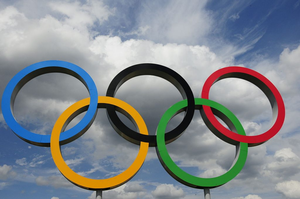2036 Olympics: India take first step, but an arduous journey lies ahead
A few years after ace marksman Abhinav Bindra won the country’s first individual gold in the 2008 Olympic Games in Beijing, India have been harbouring the dream of hosting the world’s biggest sporting spectacle.
The country took a first step towards realising that dream when Prime Minister Narendra Modi announced at the inauguration of the 141st session of the International Olympic Committee (IOC) in Mumbai in October that India “will leave no stone unturned” in trying to win the rights to host the 2036 Olympic Games in Ahmedabad.
The Indian government apparently wants to bid for the Olympics as part of its plan to enhance of its ‘Soft-Power’ post successfully hosting the G20 Summit. Hosting the Olympic Games also aligns with its global ambitions and desire to promote sporting culture in the country.
India, which had previously shown interest in bidding for the 2032 Games but did not launch an official bid, have decided to present Ahmedabad, which plans to construct a world-class sports complex, called the Sardar Vallabhbhai Patel Sports Enclave, to bolster its bid.
Having hosted two Asian Games (1951 and 1982) and the Commonwealth Games in 2010 in Delhi, this is the first time that the country has presented a place other than the national capital as the host city.
As per the plans set into motion by the Ahmedabad Urban Development Authority (Auda), the complex near the existing Narendra Modi International Stadium, the largest cricket stadium in the World, which is likely to host football and athletics, will have five grand sports stadia around it.
They include a football arena with a capacity of 50,000, two indoor arenas with a capacity of 18,000 and 10,000 each; an aquatics centre with a seating capacity of 12,000 and a tennis centre (capacity 10,000).
Besides constructing the five new venues, Auda has also plans to refurbish the existing 132,000-seat Narendra Modi Stadium, which hosted the National Games in 2022, and do a complete makeover at the Sabarmati riverfront, which will transform to enhance the overall aesthetics of the area and ensure a seamless blend with the newly-developed sports facilities.
The Gujarat government has already set up the Gujarat Olympic Planning and Infrastructure Corporation Limited (GOLYMPIC), which has been mandated to deliver the infrastructure for the Olympic Games. As per the timeline set by GOLYMPIC, construction of these five venues should start in October 2024 and be completed by October 2027.
The government plans to complete the infrastructure before 2027 to test its preparedness by bidding for the 2030 Youth Olympics.
The Olympic Games for 2036 and 2040 will probably be awarded at the same IOC Session in 2025, just like the IOC recently started doing with the Winter Olympic Games. It had awarded the 2028 Summer Games to Los Angeles in 2017 and the 2032 edition to Brisbane in 2021.
Here’s a look at where India stand in the entire bidding process:
1. As of now, PM Modi has officially declared India’s intention to bid for the 2036 Olympics. The government via the IOA will soon have to hand the IOC a letter officially making a bid.
2. India is among 10 countries which have shown interest in hosting the 2036 Olympic Games. In November 2022, the IOC started discussions with these countries, including India, which have shown interest.
The 10 countries that have shown initial interest in hosting the 2036 Games include Mexico (Mexico City, Guadalajara-Monterrey-Tijuana), Indonesia (Nusantara), Turkey (Istanbul), India (Ahmedabad), Poland (Warsaw, Krakow), Egypt (New Administrative Capital), and South Korea (Seoul-Incheon).
3. The next step would now be to make an official bid and submit the relevant bid documents.
As per the current rules, the programme to select hosts for the 2036 Games will be conducted by the Future Hosts Commission with an initial discussion with the potential bidders, called ‘Interested Parties’. This will be followed by a targeted dialogue with one or more Interested Parties — called Preferred Host/s — as instructed by the IOC Executive Board. The final selected host will be presented before the IOC Session in 2025 for vote and approval.
The new bidding system leaves a lot in the hands of the Future Bid Commission with an emphasis on sustainability and financial prudence. The Games are known to be very expensive and most incur huge costs over-run as has happened with all Games with Tokyo Olympic Games, which were postponed by a year due to the Covid-19 pandemic, and turned out to be the costliest Olympics so far. Even the bidding process itself is quite costly and even in recent years, marked by concerns over environmental protection.
The IOC has programmes for financial prudence, gender parity and legacy utilisation. However, it also emphasises on using existing infrastructure for the Games and thus gives preference to venues that may not have to spend too much on new infrastructure. But it is also a fact that because of the huge financial burden, the country still needs to put in huge efforts and monies to bid and host the Olympics.
As of now, India has taken the first step on the challenging route towards the 2036 Olympics. A long and arduous journey is still ahead.

